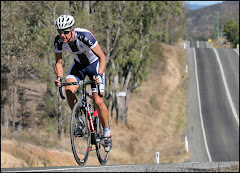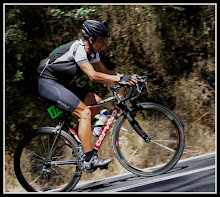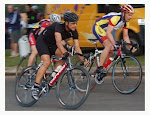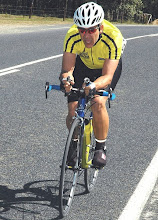Yesterday, the signs and symptoms of URTI (upper respiratory tract infection) started to present themselves in the afternoon and in such a manner that in less than an hour I found myself submerged in a state of sickness. I had a sore throat, I was sneezing, had a running nose, I had a feeling of fullness in my head, my body ached and I went quiet. That’s what happens to me when I get a flu-like infection.

I feel sorry for Sandra, my partner, because when that happens I go really quiet. It hits me so hard that all I want to do is to stick my head under a blanket and sleep for 24 hours. In fact, that is how I usually get better. My old recipe is: eat, sleep, eat and sleep.
There was a chance that I wouldn’t be able to deal with it this way as I was rostered to be at work this morning… but after a sleepless night there was no way I could go to work so I called them before 5 am saying: - Sorry…
With a very sore body, I went back to bed for a couple of hours. Next to me, I had a book by A. Jeukendrupe, High-Performance Cycling where he, and friends, devotes an entire chapter on the immune system.

After breakfast, I got into reading that chapter to try to have a better understanding of what I did wrong with my training, my diet and/or my rest in the last few days, causing the failure of my immune system and consequently my infection.
Here are the causes:
I did a long and strenuous ride on Friday (110 km) after a week of intense workouts.
Insufficient rest and another ride on Saturday morning (60 km)
Possible protein deficiency – common on vegetarians
I didn’t drink enough on the last two rides – dehydration
Small amount of alcohol intake in the evenings
Vitamin A, C and Zinc deficiency
Exposure to airborne viruses and bacteria in public places
Now, how to minimise the risk of Immunosuppression:
Allow sufficient time between training sessions for recovery
Avoid extremely long training sessions, restrict to 2 h max.
Periodise your training and ensure variation in the day-to-day training load
Ensure hard training days are followed by recovery days
When increasing training load, do it on hard days. Do not eliminate rest days
Keep life/social/psychological stresses to a minimum
Get adequate and regular sleep
Drink carbohydrate sports drinks before, during and after prolonged workouts

The book has some complex and interesting facts on all the above, it might be a good read for those that are training hard and are preparing for the long road season ahead.
Rest HR this morning: 53 bpm – 5 to 8 beats higher
Weight this morning: 65.7 kg – 2 kg less
No riding today, possible easy (E1) 20 km ride tomorrow.












.jpg)

.jpg)




3 comments:
Meu filho li e entendi o que pude, pelo jeito é falta de descansar e se alimentar direito.
Cuidado com vc. é muito trabalho e muito treino.
D anoticias assim que puder. sua mãe. beijos
Meu filho a ingestão de vitaminas C e E ajudam ao sistema imunologico a se recuperar.
Sempre em caso de stresse e alimentação precária.
Beijos
Querida mae, No caso das alimentacao, me alimento bem. O trabalho nao e tao pesado pq temos funcoes diuferentes durante a samana e na maior parte do dia nao fazemos nada. O aumento de horas na bicicleta, com pedaladas mais longas, pode ser um problema. Temos que ter uma boa recuperacao. No caso da minha gripe, foi uma mistura de ter feito duas pedaladas longas e ter ficado desidratado... Mas e so um resfriado, comum a atletas. Bom, bom saber que voces estao acompanhando tudo. Beijos!!!
Post a Comment